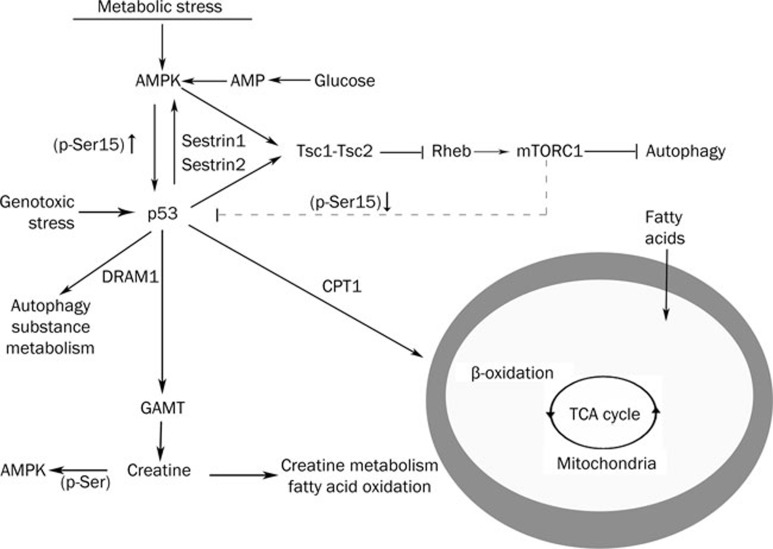Figure 1.
The AMPK-p53-mTOR pathway in metabolic adaptation. Activation of p53 by metabolic stress is regulated by AMP-activated protein kinase (AMPK)-dependent phosphorylation and influenced by mammalian target of rapamycin complex1 (mTORC1). p53 further induces AMPK (both directly and indirectly through the sestrins) and activates the expression of tuberous sclerosis complex 2 (TSC2), resulting in the inhibition of mTOR. The activation of p53 may also cause up-regulation of carnitine palmitoyltransferase (CPT1) and enhancement of β-oxidation of fatty acids. p53 regulates expression of damage-regulated autophagy modulator 1 (DRAM1), which in turn induces autophagy. p53 up-regulates guanidinoacetate methyltransferase (GAMT), which regulates the creatine metabolic pathway involved in fatty acid metabolism.

